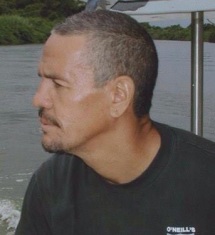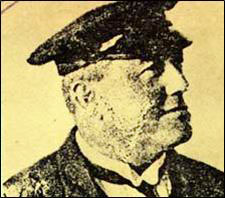
G. Michael Reid
By G. Michael Reid
In the same way that Memorial Day opens the summer season for our neighbors up north, Benefactor’s Day heralds the arrival of our dry season. This holiday was initially given in honor of Belize’s biggest benefactor Baron Bliss. Given that Ninth of March is right around the corner, I thought it timely and appropriate to republish this article that I wrote several years ago.

Baron Henry Edward Ernest Victor Bliss, JP
Baron Henry Edward Ernest Victor Bliss, JP was born in the Buckingham County of England on the 16th of February, 1869. His real surname was actually Barretts but was changed to Bliss just about the time that he acquired the title of fourth Baron of the former Kingdom of Portugal. That title was acquired through lineal descent from one Sir John Moore, who was a hero in the wars of that domain.
In 1911 and at the prime age of 42, Baron Bliss was struck by paralysis and was for the remainder of his days, confined to a hand propelled wheelchair. By the time of his medical misfortune, Baron Bliss had amassed considerable wealth; enough to realize his dream of retiring to a life of seafaring and fishing. After replacing his first boat, which was commandeered for use during World War 1, Baron Bliss said goodbye to his native England and shoved off, making it clear that he never intended to return. As far as we know, Baron Bliss had no children but was married to Baroness Ethel Alice Bliss, with whom he settled a covenant before leaving and for whom he made a modest provision in his will. According to the Baron, his married life had been a happy one but records suggest otherwise. There is no record of the Baroness making any attempt to contact Bliss or of attending his funeral. She died in England in 1945.
After leaving England, Baron Bliss made his first stop in the Bahamas where he acquired some property seemingly indicating that he contemplated staying there. After some five years, however, he grew to dislike the place and in 1925 shifted rudder for the other end of the Caribbean. His next stop was Trinidad but after contracting food poisoning just a short time after arriving, he seemingly concluded that neither was that the place for him. At that time he decided to heed the invitation of an old friend Willoughby Bullock, who was then Attorney General of Belize. After a brief stop in Jamaica, most likely for medical attention, the Sea King arrived and dropped anchor in the harbor of Belize on January 14th, 1926. It was love at first sight and the Baron’s heart was finally at ease.
Although he never set foot on land and was dead less than two months after arriving, Baron Bliss was so impressed with the beauty and hospitality that greeted him in Belize that he decided to leave us the bulk of his fortune. At the time of his death, the Baron’s total bequest was valued at a million, eight hundred and fifty thousand dollars; quite a tidy sum in those days. Before we had quite done counting however, England dropped a bombshell. Although it is specifically stated in the first line of his will that Baron Bliss considered himself domicile in Belize, and while he even wrote a letter to his brother to that effect, the British government decided to contest the matter in court. On March 11th, 1929, a decision was handed down by a Mr. Justice Rowlatt of the King’s Bench which read, “I must find that it is not made out that this gentleman acquired a British Honduras domicile.”
As a result, at least a quarter of the original amount given to us by Baron Bliss was taken out for British taxes and though outraged at the decision, it was not likely that many in Belize could have been surprised. The matter after all, was argued in England, before an English judge and with English lawyers representing both sides; how else could we have expected that to go?
Now the will left to us by Baron Bliss is a meticulously worded document which is quite specific in its dos and don’ts. Only the interest is to be spent and no loans can be raised where the money is used as security. An interesting stipulation, and one quite specific in its noting, is that no American citizen was to be a trustee of the fund or even an employee of any trustee. No actual reason was given for this. The money is not to be used for churches, dance halls or schools; except agricultural or vocational. This seems to leave the door wide open for funding to projects like CET or ITVET. The money can also be used for canals and light supply and it would seem that many a lightless village could be considered here.
The Baron’s will is quite specific and even stingy in the things for which the money can be used. Neither provision for sports or education are allowed and the Baron was quite clear in stating that there are some things which he believed that government should be responsible for. He was clear that none of his money should be used for any repairs or maintenance of any projects or building from his fund. He was adamant that for such, government should take up the responsibility.
Interestingly enough, since 1985 when Leo Bradley Sr. compiled the information from which I have drawn, no account of disbursements of this fund have been made public. By the time of Mr. Bradley’s research, quite a few projects had been realized with the interest having yielded well over a million dollars. The Bliss Institute, the Bliss School of Nursing and at least one project in every district had materialized, but since that time the purse string seem to have been drawn tight. One wonders if every ninth of March would not be a good time to give the public information on interest accrued and some account of how these monies are being spent, after all, this was a gift to the people of Belize not to politicians. The trustees of the fund, in case you’re wondering are the Governor General, the Attorney General and the Financial Secretary. Keep your eyes open Sir Colville, keep your eyes open. Happy dry season Belize and to the Baron, a heartfelt thank you!